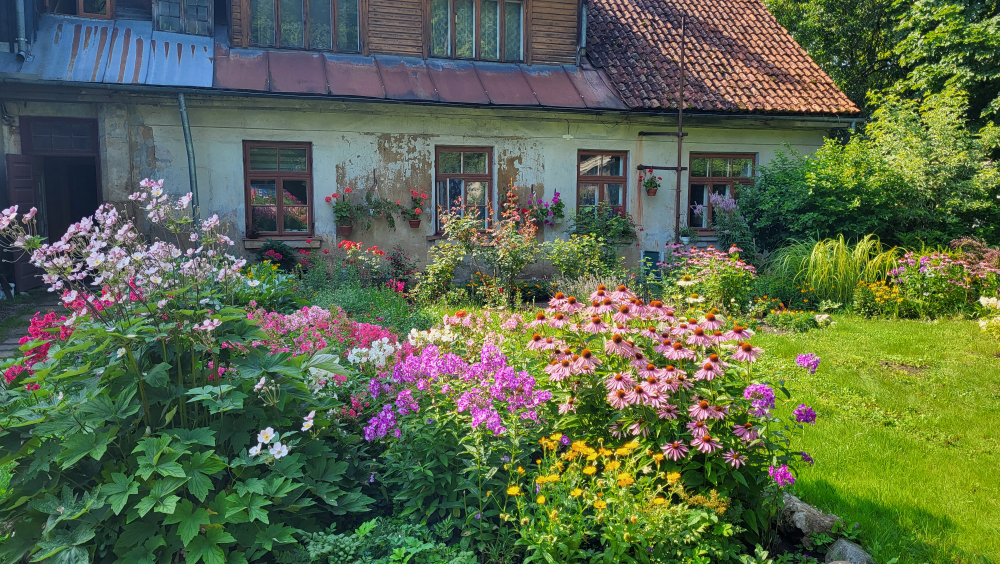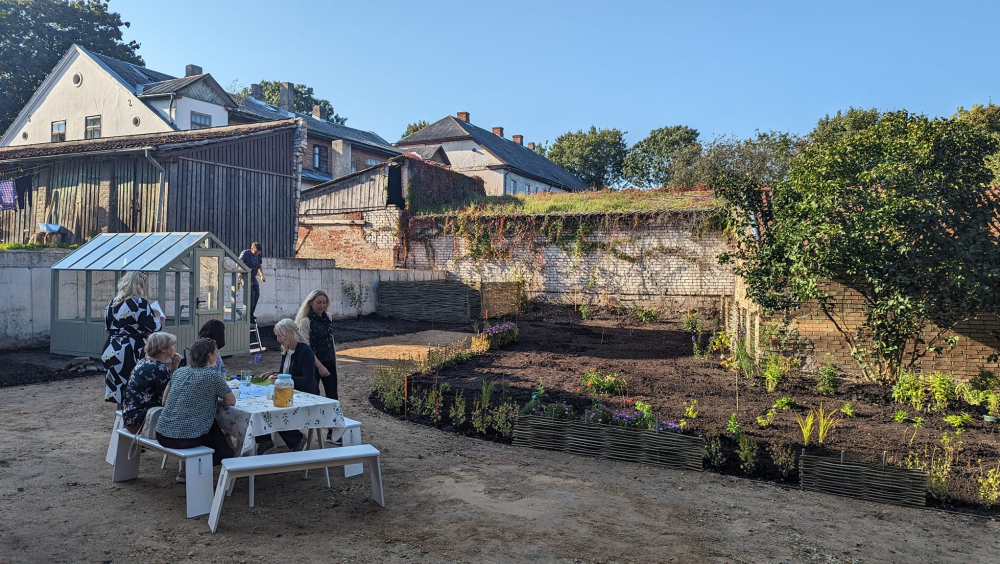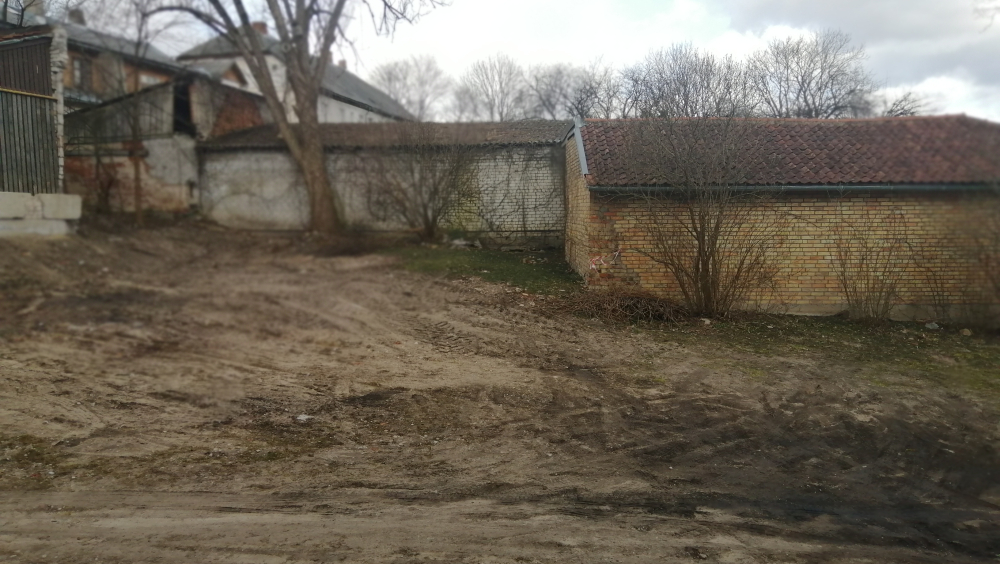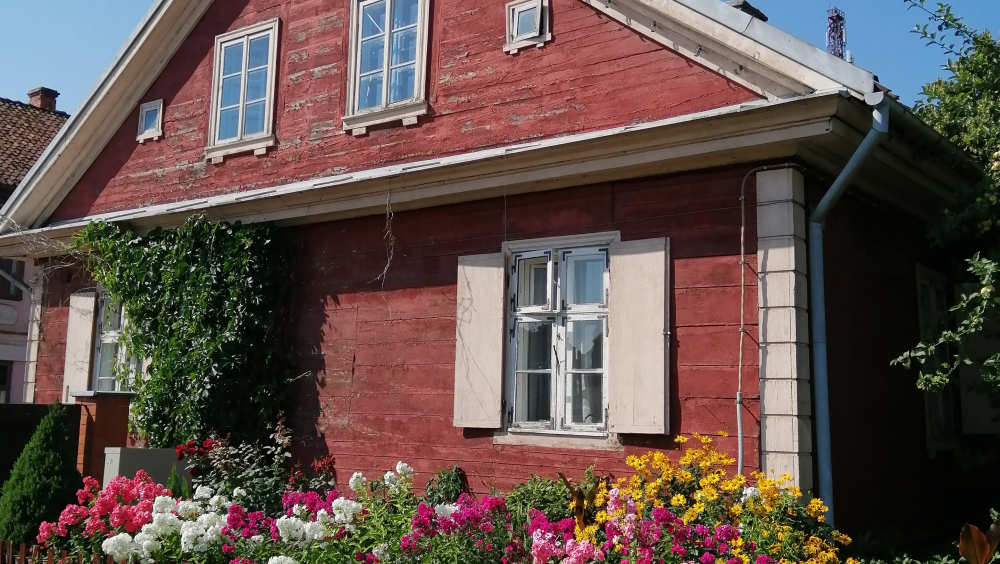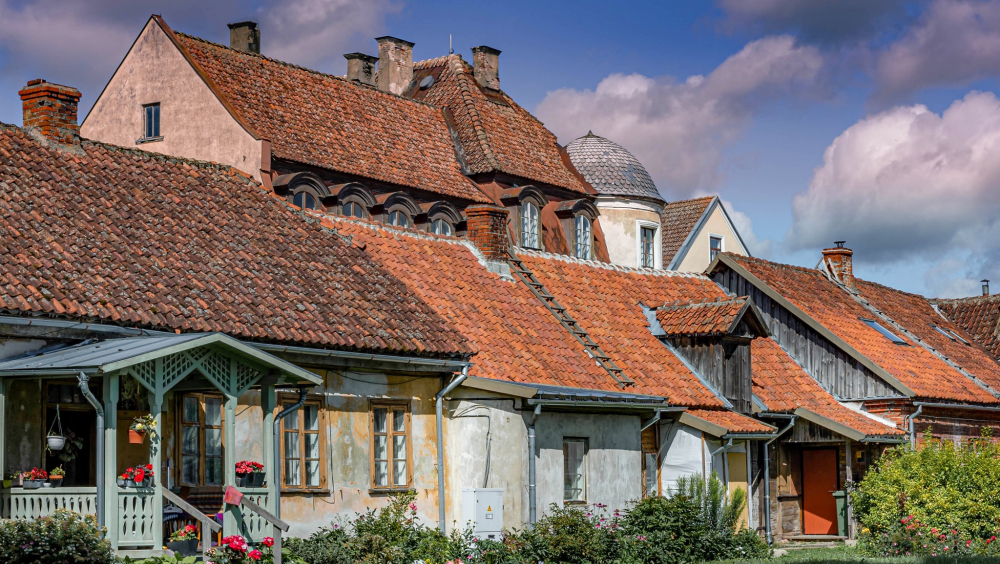Reviving Tradition: A Journey Through Kuldiga's Historical Gardens and the Green Renaissance
Kuldiga, the former capital of the Duchy of Kurland and Semigallia, since 2023 a UNESCO World Heritage site, is at the center of a collaborative effort to revive its historical essence. The project, undertaken by the municipality, the Restoration Centre of Kuldiga, the NGO Coordination Center of Cultural Projects, and residents (referred to as the Group), focuses on preserving the cultural heritage and sustainability of the old town. With a commitment to traditional building methods and natural materials, the municipality and Restoration Center actively safeguard Kuldiga's historical authenticity.
A significant challenge addressed by the project is the the disappearance of gardening tradition in Kuldiga, posing a threat to its cultural environment. Scientist Aija Melluma's research underscores the historical importance of gardens, presenting an opportunity to create a new garden city that harmonizes traditions with modern attitudes. Open city planning over the last two decades has led to the disappearance of intimate courtyards, traditional plant species, and gardening knowledge.
Responding to this challenge, the Group transformed a degraded area into a traditional garden in 2023, symbolically divided into three parts. This garden, with its blend of historical and modern elements, serves as an inspiration for residents to create gardens aligned with the architectural style of small towns. An ERASMUS+ project, implemented during the preparatory phase, explored European experiences in historical gardening, introducing successful examples from countries like Sweden, Luxembourg, and France.
Looking ahead to 2024, the project plans a series of lectures and workshops led by local and foreign experts, encouraging citizens to create and maintain front gardens. The Group's commitment to providing knowledge about plant species, maintenance, and environmentally friendly pest control aligns with the project's goal of contributing to the green transformation of city environments. The creation of a route showcasing old town gardens, collaboration with local artists, and celebratory events during the European Heritage Days in 2024 and 2025 reflect the project's comprehensive and sustainable approach. With a focus on community engagement, environmental consciousness, and preservation of cultural heritage, the project emerges as a promising model for reviving historical traditions and fostering a harmonious coexistence with nature in Kuldiga.
Kuldiga, once the capital of the powerful Duchy of Kurland and Semigallia, has successfully preserved the genius loci of its historical city, earning a coveted spot on the UNESCO World Heritage List in 2023. The notion of traditional gardens as a crucial aspect of Kuldiga Old Town's genius loci has been cultivated through collaboration between the municipality, the Restoration Centre of Kuldiga, the NGO Coordination Center of Cultural Projects, and the Old Town residents, collectively referred to as the Group. The municipality is committed to safeguarding the authenticity of Kuldiga Old Town's cultural heritage and ensuring the sustainability of traditional crafts and methods essential for the preservation of historical buildings. The Restoration Center of Kuldīga, as a guardian of values, actively promotes traditional building management methods and the use of natural materials in maintaining historical structures.
A significant challenge addressed by this project is the disappearance of Kuldiga's age-old gardening tradition, a phenomenon with potential repercussions for the cultural environment. Scientist Aija Melluma, in her research, underscores the historical importance of gardens in Kuldiga, both within the built-up area and beyond, noting that townspeople still hold memories of the oldest gardening places. This historical legacy is viewed not only as a part of Kuldiga's past but also as an opportunity to create a new garden city, blending traditions with modern attitudes. During the duchy era, the town boasted an aviary, a duke's deer garden, and a palace garden near the River Venta. Front gardens adorned the yards of every house in the old town with ancient flower varieties, lush herbs, and berry bushes.
Regrettably, over the last two decades of open city planning, residents have ceased cultivating gardens in the old town. This has led to the disappearance of the intimate courtyard atmosphere, the erosion of knowledge about traditional plant species, and a general deterioration of the cultural environment. Specific knowledge essential for creating gardens in a historical area has been lost, particularly during the Soviet period, resulting in a generational decline in gardening traditions, skills, and knowledge about plants and composting.
In response to this challenge, the Group, inspired by landscape architect Rita Kirke's research on traditional gardens in Kuldiga from the 19th-20th century, created an exemplary traditional garden in 2023. Previously considered a degraded area, it is now transformed into a place of inspiration. The garden is symbolically divided into three parts—representing a regular kitchen and herb garden, a semi-regular flower and tea garden, and an occasional front garden on the street side. This design reflects the historical practice of small-town courtyard plantings where residents planted without adhering to a specific style or criteria. In creating this garden, the residents of the old town actively collaborated by planting plants and laying paving stones. This garden exemplar project received financial support from the Rural Support Service of the Republic of Latvia.
As residents with limited financial resources reside in the old town, the inclusion of Kuldīga's old town in UNESCO further restricts their opportunities due to the escalating gentrification. In such circumstances, the garden and its upkeep present extensive opportunities for activating this target audience and engaging them in lifelong learning activities. Maintaining a garden in the old town facilitates knowledge acquisition and promotes both physical and mental well-being through active movement. The beauty of the garden offers avenues for relaxation and self-harmony. The active involvement of seniors in this project stems from their wealth of knowledge in plant and flower care, seed harvesting, and composting. Collaboratively, knowledge exchange ensures that older generations feel valued, while younger participants gain essential skills.
The purpose of this newly created traditional garden is to inspire residents of the city and the surrounding area to creatively design their urban courtyard gardens. These gardens aim to retain the context and assortment of plants, untouched by modification or detachment from the architectural style of small towns. The objective is to encourage the creation of gardens that provide aesthetic pleasure, cater to family needs, and offer a unifying connection with nature and its rhythms.
During the preparatory phase (2022-2023), the Group implemented the ERASMUS+ adult education project. This initiative sought to explore the experiences of creating gardens in historical environments across various European countries, introducing successful examples from Sweden, Luxembourg, and France. The project effectively activated local society, focusing on common interests such as green values and sustainability inherent in gardens and gardening. This engagement attracted new target audiences, fostering lifelong learning processes. The overarching goal is to contribute to the green transformation of city environments by leveraging urban gardening to promote environmental consciousness and eco-friendly living—a proactive response to the urgent need to adapt to climate change.
Building on the success of this project idea, a follow-up plan for 2024 includes organizing a series of 10 lectures and practical workshops. These sessions will be led by local and foreign experts to share experiences from historical environments in various European countries. These activities aim to involve local citizens, encouraging them to create and maintain front gardens adjacent to their dwelling houses. The Group is committed to providing residents with knowledge about plant species suitable for the historical environment, maintenance conditions, and environmentally friendly pest control methods. The anticipated outcome of this effort is the creation of a route showcasing the old town gardens, serving as a source of inspiration for a broad audience. The Group also plans to enhance cooperation with local artists from various disciplines, creating pocket gardens that interpret ancient garden traditions. Concerts and guided tours will be organized to make these gardens accessible to the public, with all activities offered free of charge to the target group. The project's results will be celebrated during the European Heritage Days in both 2024 and 2025.
Families with children constitute another crucial target group of the project. It aims to instill outdoor habits and promote physical activity. Thus, an event titled "Green Picnic for the Whole Family" will be organized, featuring innovative workshops and environmental education initiatives.
Video with subtitles in English: https://www.youtube.com/watch?v=T_N-AJBiqkA
Gardens, crucial for urban ecological balance, symbolize the direct connection between civilization and nature per the Florence Charter on Historic Gardens (ICOMOS, December 1982). These spaces are a testament to culture, style, age, and artistic creativity. A growing shared interest in historical gardens across Europe positions them as integral to our common cultural heritage. Recognizing them as repositories of knowledge, our project aims to champion eco-friendly principles—avoiding pesticides, utilizing rainwater, and embracing local traditional plants, principles commonly upheld by eco-friendly gardening communities throughout Europe.
By instilling EU Green Deal and sustainability in local society, the project engages new audiences in lifelong learning. It aspires to contribute to the green transformation of city environments, employing urban gardening to promote environmental awareness and eco-friendly living—a vital response to climate change adaptation needs.
Collaboration with partners from Lithuania, Finland, Sweden, Luxembourg, and France fosters the exchange of experiences and knowledge on historical gardens and gardening prerequisites, advancing the principles of the Green Deal at a broader European level.
Emphasizing Kuldiga's historical ties to the Duchy of Kurland and Semigallia enhances its European dimension. The project's exploration of European experiences through the ERASMUS+ initiative and partnerships with countries like Sweden, Luxembourg, and France exemplifies a broad, inclusive approach, potentially serving as a best practice model for other communities.
Aligned with European Heritage Days priorities, the project champions diversity through traditional gardening practices promotes education via community workshops, encourages involvement in green values and sustainability, and contributes to environmental protection through urban gardening.
With significant potential to positively impact the community, the project inspires residents to create gardens, fostering pride and connection to cultural heritage. The emphasis on education, community engagement, and environmental consciousness signifies a holistic approach with positive implications for the community.
